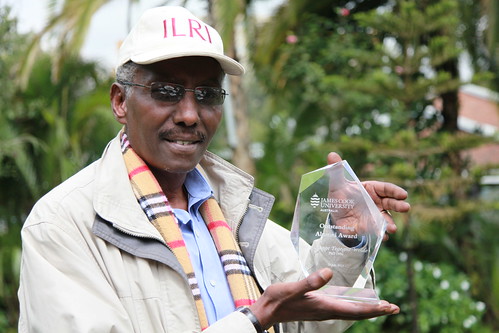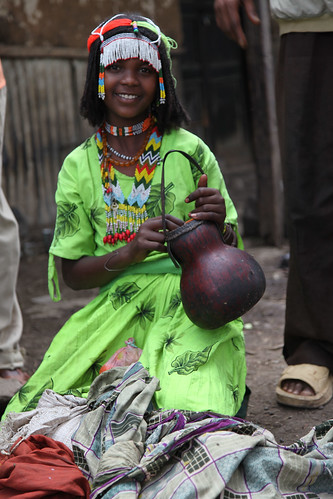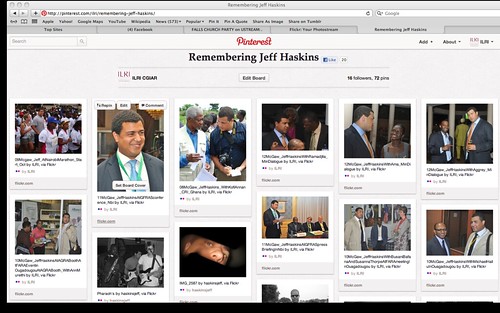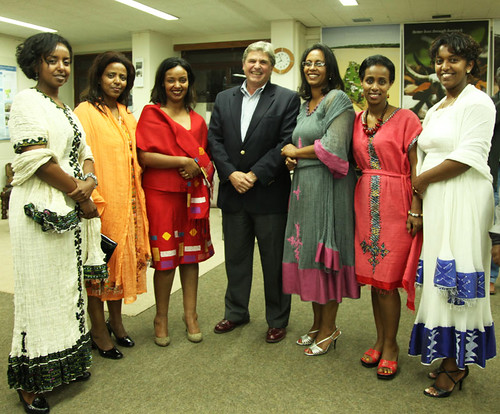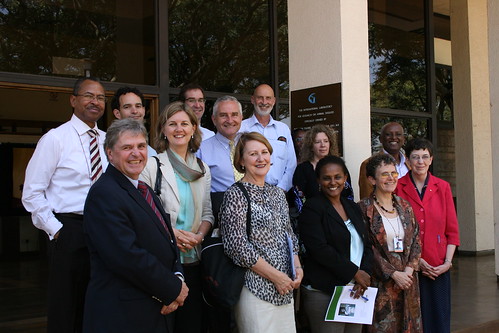ILRI’s Azage Tegegne is a recipient of the 2013 James Cook University Outstanding Alumni Award (photo credit: ILRI/Apollo Habtamu).
Azage Tegegne, a senior scientist working with the International Livestock Research Institute (ILRI) in Ethiopia has received recognition from Australia’s James Cook University for his outstanding contributions to agricultural research in Africa.
Tegegne, an Ethiopian, was one of 12 recipients of the 2013 James Cook University Outstanding Alumni Award given on 26 Jul in Townsville, Australia. The award pays tribute to graduates of the university who ‘have made an outstanding contribution in their field of endeavour and to the community’.
This year’s winners include lawyers, health workers, a school principal, an engineer, a wildlife conservationist and a businessman and represent citizens from Afghanistan, Ethiopia, Northern Ireland and the Philippines.
‘I accept this award and honour in the name of my beloved wife, Tsehay Azage, who passed away on 17 Jul 2013’, said Tegegne.
His wife’s funeral took place on 21 Jul in Addis Ababa, Ethiopia – just five days before the award ceremony.
‘My wife was an agricultural professional herself with a BSc degree in plant sciences from the Alemaya College of Agriculture at Addis Ababa University, in Ethiopia, and an MSc degree in plant pathology from Imperial College, University of London, in UK. She was a wonderful woman who contributed significantly to my success over the years’, Tegegne said.
Tegegne was honored by his alma mater for his more than 25 years of work, including being a founder member of the Ethiopian Society of Animal Production and a founding fellow of the Ethiopian Academy of Sciences. Tegegne has authored or co-authored more than 280 scientific and professional articles in journals, proceedings volumes and book chapters and has supervised and coached more than 65 PhD and MSc/DVM students.
Tegegne, who is deputy representative for ILRI’s director general in Ethiopia, manages one of ILRI’s largest research projects in Ethiopia, called ‘Livestock and Irrigation Value chains for Ethiopian Smallholders (LIVES)’. The project works to support millions of Ethiopian smallholder farmers who depend on livestock and irrigated croplands for their agricultural livelihoods.
In 2012, Tegegne received an honorary doctorate degree of sciences from Ethiopia’s Bahir Dar University (photo credit: ILRI).
Tegegne is a recipient of several other awards, including an honorary doctorate degree of sciences given to him in 2012 by Ethiopia’s Bahir Dar University in recognition of his contributions to agricultural research and ‘the betterment of farmers’ lives’ in his native country. Earlier this year, he was appointed representative of the Australia Awards Ambassador Initiative of AusAID to help better bridge development efforts between Africa and Australia.
Read more about Azage Tegegne’s 2013 James Cook University Outstanding Alumni Award.

